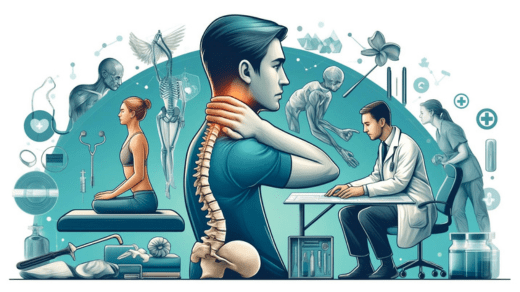Diabetic individuals often experience intense hunger. In those situations when the sugar levels are both high and low, the human body is not able to regulate it by itself. When the glucose level in the blood rises, sugar cannot break down the insulin. So energy will not reach the cells rather, cells will starve uninterruptedly. In both cases, the body is unable to make use of its nutrition. Let’s take a closer look at how this impacts diabetes.
What are the types of diabetes?
- Type 1 diabetes occurs when the immune system targets and destroys the cells responsible for producing insulin. Eventually, you will feel intense hunger and failure to regulate blood sugar.
- In type 2 diabetes, there is insulin resistance. This means the body cannot make use of the insulin produced in the body. The effects include increased appetite, weight gain, and inappropriate control of blood sugar.
- Gestational diabetes develops in pregnancy and typically leads to an uncontrollable appetite and weight gain in the mother
What are the Diabetes Symptoms?
Common symptoms of diabetes include:
- Increased thirst
- Frequent urination
- Extreme hunger
- Fatigue
- Blurred vision
- Unexplained weight loss
- Slow healing of wounds
Poor diabetes control can cause symptoms like fatigue and excessive hunger. If you notice these symptoms, visit the best diabetes doctor in Coimbatore early to prevent further complications. These symptoms are caused by high blood sugar levels and may vary depending on the type of diabetes.
What causes excessive hunger in people with diabetes?
One of the common causes of excessive hunger in people suffering from diabetes is poor control of diabetes, which is usually caused by fluctuations in blood sugar levels. High blood glucose cannot be utilized appropriately by the body for energy. Thus, it could mainly give the feeling of hungry cells, which causes excessive hunger. Poor diabetes control can lead to unpredictable blood sugar fluctuations.
Can hunger be a sign that my diabetes medication needs adjustment?
One may experience excessive hunger symptoms if the medication for diabetes needs to be adjusted. This occurs when the insulin or other medications fail to control the blood sugar level and results in excessive hunger and poor diabetes control. Excessive hunger can be caused by either of the two.
1) High blood sugar, in which glucose cannot be processed by the body
2) Low blood sugar, which may indicate that the body requires energy right away.
What are the risks of ignoring persistent hunger in diabetic individuals?
- Hunger can result in overeating, which usually causes blood sugar imbalances and poor diabetic control.
- This brings about complications, such as heart disease, kidney problems, and nerve damage.
- Poor diabetes control can result in a risk of vision loss.
Can intense hunger cause overeating and interfere with weight management in diabetes?
Excessive hunger can lead to overeating, which often results in weight gain. Excessive hunger and weight gain are faced by most of the diabetic patients. Poor diabetes control frequently leads to weight gain and insulin resistance. Excessive hunger can lead to poor eating habits. This overeating can contribute to weight gain, making it more challenging to manage diabetes and leading to poor diabetes control.
Is it normal to feel hungry even after eating a meal if I have diabetes?
People who have diabetes tend to feel hungry long after they have eaten their meals if their blood glucose levels are not well controlled. Sometimes, this may reflect poor control of diabetes due to either high or low availability of glucose to the body to use for energy. Excessive hunger is common in diabetics. Hunger pangs are often caused by a high blood sugar level that is high and uncontrollable by insulin that cannot use glucose effectively or lower when more energy is needed.
What types of foods can help control hunger if you have diabetes?
Food that would stabilize glucose levels and at the same time handle severe hunger are
- Fiber-rich foods, including whole grains, vegetables, and legumes, prevent extreme hunger as they fill up the body and slow the absorption of sugars.
- Lean proteins such as chicken and fish are also known to reduce hunger without increasing blood sugar.
- Healthy fats from avocados, nuts, and olive oil help reduce poor diabetes control and even alleviate cravings.
Can stress lead to increased hunger in individuals with diabetes?
Yes, stress, for people diagnosed with diabetes, can be a stimulus to overeat. Emotional factors can also trigger excessive hunger. That’s because the secretion of cortisol hormones, which are stimulated through stress, usually augments appetite or craving, more specifically for foods that consist of high sugar or high fats. So stress is also the main reason for excessive hunger. Poor diabetes control damages vital organs over time.
How does poor diabetes control lead to overeating?
Poor diabetes control can also lead to overeating just to satisfy the energy needs of the body. This complicates poor diabetes control because excessive hunger leads to poor blood sugar regulation. Visit the best diabetes hospital in Coimbatore to prevent it from destruction like excessive hunger and poor diabetic control. Poor diabetes control increases the risk of long-term health complications.
How often should I check my blood sugar levels if I’m feeling hungry frequently?
Monitor blood sugar levels more frequently if you feel extreme hunger all the time. Monitoring glucose levels several times daily, for example, before and after meals, will help you understand if poor diabetes control is the reason for frequent extreme hunger. Regular monitoring is essential to avoid poor diabetes control and complications. Typically, extreme hunger indicates that blood sugar is either too high or too low, which are symptoms of poor diabetes control. You check your blood glucose, identify some patterns, and make some changes to your diet and medication.
Conclusion:
Therefore, controlling blood sugar is very important in preventing constant hunger and complications. Glucose level monitoring, proper diet, and maintaining a constant treatment schedule improve overall health. Early detection and proper care of diabetes can help control the disease.




